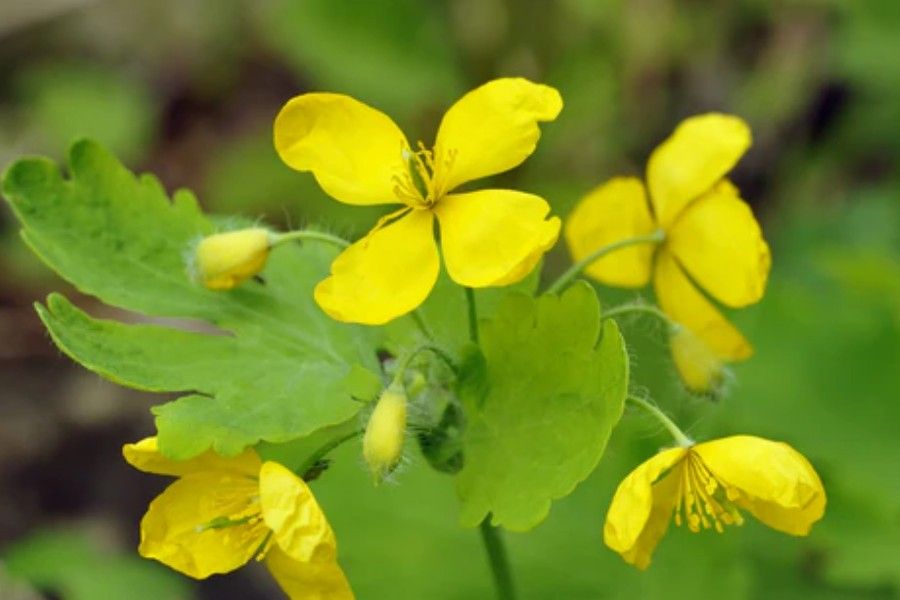Quality and Satisfaction is Always Our Priority
Quality and Satisfaction is Always Our Priority

Greater celandine, scientifically known as Chelidonium majus, is a perennial herb belonging to the poppy family (Papaveraceae).
In folk culture, it is also known by various names such as “swallow herb,” “wart herb,” or “eye herb.” It commonly grows in moist forest edges, along roadsides, and in shaded areas. The plant blooms with bright yellow flowers from spring to autumn. Its leaves are deeply lobed and serrated. When its stem or leaves are broken, it exudes a yellow-orange milky sap.
Skin Health: Its most well-known use is in the treatment of warts, corns, and similar skin issues. The milky sap is applied directly to the affected area.
Liver Support: It is believed to support liver function, stimulate bile flow, and aid digestion.
Pain Reliever & Antispasmodic: It may help relieve muscle spasms and certain gastrointestinal discomforts.
Antiviral and Antibacterial: Due to its alkaloid content, it may have properties that combat certain microorganisms.
Eye Health: Historically used for eye inflammations and styes, though caution is advised today.
Topical Application: The milky sap is applied directly to skin problems such as warts.
As a Tea: A mild tea can be made from dried leaves, though it must be used with extreme caution.
Tinctures/Extracts: Due to its potent alkaloids, ready-made tinctures or extracts should be used under professional supervision.
Greater celandine contains toxic alkaloids, so improper or excessive use can be dangerous. Especially when taken orally, it should only be used under the supervision of a healthcare professional. It is not recommended for individuals with liver disorders, pregnant or breastfeeding women.